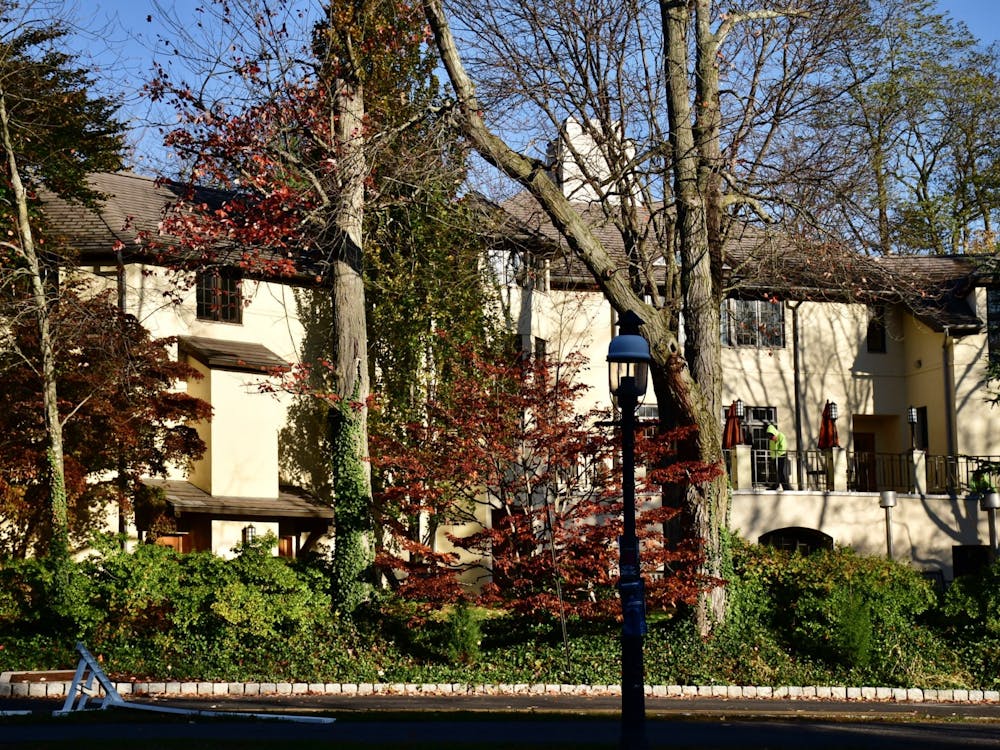Today, the largest wildfire in California’s history is burning at over 459,000 acres and counting. The previous record holder raged only eight months before. Just as the world is being struck with harsher fires, stronger storms, more crop-eating pests, and other devastating consequences of climate change, we risk becoming cripplingly inured to these warning signs. It will fall to our generation to take the action against climate change that we sorely need.
There are plenty of plans to be executed and a multitude more to be created. Where better to do so than in an intellectually fertile community like ours, where future engineers, policy makers, scientists, economists, doctors, and writers can come together and learn from one another? We students are perfectly positioned to take effective action on climate change through both research and outreach.
Consider, for example, the New Jersey Climate Policy project organized by the Princeton Student Climate Initiative, an ongoing student-run effort to research a simple, effective, and politically practical climate policy called carbon fee and dividend. A carbon pollution fee, usually starting around $20 per metric ton of carbon dioxide and ramping upwards, converts the social costs of carbon pollution to a dollar price on fossil fuels. It makes it more expensive to pollute, incentivizing people and businesses to switch to competitive clean and energy-efficient options. The majority of fee revenue is returned to households as monthly checks in the mail, so they come out ahead on average. The remainder is invested in infrastructure and incentive programs to encourage clean technologies. Similar policies have been implemented around the world, including Canada, Ireland, and Denmark, slashing emissions without harming the economy. Crucially, pollution fee and dividend has bipartisan popular support in the United States, as high as 67 percent in recent polling.
It is challenging, but necessary, to turn this policy from proposal to practice. That’s where students come in. Model policy research requires seeking out all relevant stakeholders and hearing their priorities. That means looking again at the NJ Climate Policy blueprint, energy providers, environmental organizations, government officials, and the business and labor players that face the up-front economic impacts of carbon pricing. While it’s tempting to dig into ideological trenches, political progress comes from building alliances and bringing all relevant parties to the table, especially in the face of disagreement or hostility. That’s why PSCI is bringing over 40 stakeholders from the labor, business, government, and environment sectors to campus on Sept. 15 for the inaugural NJ Climate Policy Stakeholder Forum: to discuss policy priorities and find common ground for meeting New Jersey’s 2050 emissions targets.
Engagement is a hard process. It’s a prolonged process. It can be intimidating at times. But it lays the foundation for politically sustainable solutions, as finding common ground with diverse groups now can preempt political battles later. It’s why, for example, after years of community engagement, Washington state is one ballot vote away from making carbon fee and dividend part of its clean energy plan.
Obviously, we won’t halt climate change with one bill in one state. But while we fight for effective and equitable climate policy in New Jersey, similar student groups are mobilizing all over the nation. OurClimate is harnessing college student voices nationwide to call for carbon pricing as a just and science-based climate policy and is actively engaged in the ballot initiatives in New York and Washington state. Students for Carbon Dividends has united 30 young Democratic, Republican, and green groups, including PSCI and the Princeton College Democrats, to explore a national price on carbon.
If you’re ready to commit to the cause, remember that how you push for change matters just as much as your conviction that change is the right choice. Stay solution-focused. Maintain scientific integrity. Treat opponents as opportunities to teach, not enemies to demonize. Our generation didn’t start climate change, but we stand to suffer its worst impacts. It’s time for all of us to find our voices, come together, and stand up for carbon fee and dividend and other feasible policies that are proven to make a difference and protect the most vulnerable among us.
Arjuna Subramanian is a senior concentrating in chemistry from Denver, Colo. He is the writing director of the Princeton Student Climate Initiative and can be reached at arjunas@princeton.edu.








